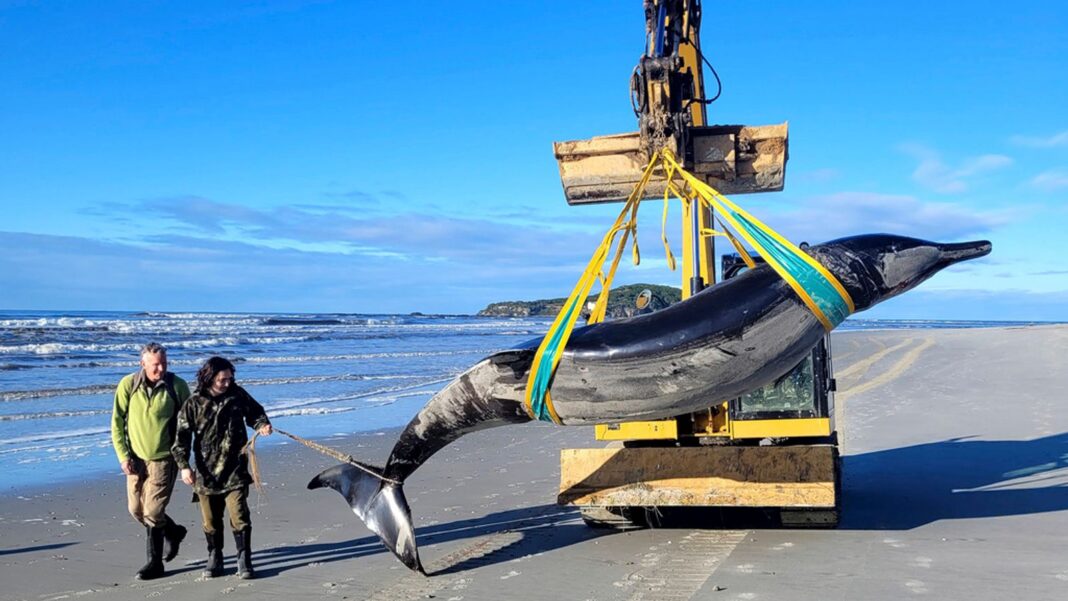One of the world’s rarest whales, about which scientists know “practically nothing”, may have washed up on a New Zealand beach.
The dead mammal found at Otago, on the South Island, is thought to be a spade-toothed whale, which has never been seen alive in the wild.
There is little information on how many of the creatures exist, what they eat, or even where they live in the vast expanse of the southern Pacific Ocean.
New Zealand‘s conservation agency said the animal was identified by its colour patterns and the shape of its skull, beak and teeth, after it washed ashore earlier this month.
Hannah Hendriks, marine technical adviser for the country’s Department Of Conservation, said “very little, practically nothing” is known about the creatures.
She added: “This is going to lead to some amazing science and world-first information.”
If the mammal, which was five metres long, is confirmed to be the spade-toothed whale, it would be the first specimen found in a state that would permit scientists to dissect it.
Ms Hendriks said only six other spade-toothed whales have ever been identified – and those found intact on New Zealand’s North Island beaches were buried before DNA testing could verify their identification.
This time, the beached whale was quickly transported to cold storage and researchers will work with local tribes to plan how it will be examined, the conservation agency said.
The creature washed ashore earlier this month. Pic: Department Of Conservation/AP

Pic: Department Of Conservation/AP
No potential reasons for why the whale washed up on the beach have been provided.
New Zealand’s Indigenous people consider whales a sacred treasure of cultural significance.
In April, Pacific Indigenous leaders signed a treaty recognising whales as “legal persons”, although such a declaration is not reflected in the laws of participating nations.
Read more on Sky News:
Flood risk amid three UK weather warnings
‘Free lunch for Copenhagen’s green tourists’

Keep up with all the latest news from the UK and around the world by following Sky News
The creatures deep-dive for food and likely surface so rarely it has been impossible to narrow their location further than the southern Pacific Ocean, Ms Hendriks said.
“It’s very hard to do research on marine mammals if you don’t see them at sea,” she added.
“It’s a bit of a needle in a haystack. You don’t know where to look.”
The conservation agency said the genetic testing to confirm the whale’s identification could take months.







